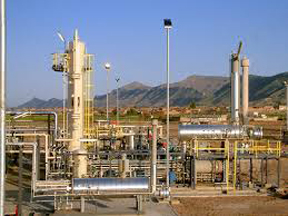 ISLAMABAD: Pakistan has around 200 trillion cubic feet of recoverable reserve of natural gas and around 58 billion barrels of oil in its shale structure which is higher than estimated previously, Minister for Petroleum and Natural Resources said.
ISLAMABAD: Pakistan has around 200 trillion cubic feet of recoverable reserve of natural gas and around 58 billion barrels of oil in its shale structure which is higher than estimated previously, Minister for Petroleum and Natural Resources said.
Sharing findings of a recent Shale Gas Study, Minister for Petroleum and Natural Resources Shahid Khaqan Abbasi said the new data shows that reserves were many times larger than existing conventional gas reserves of around 20 trillion cubic feet (TCF) and 385 million barrels of oil.
A shale gas study initiated in January 2014 with the support of United States Agency for International Development (USAID) had been completed, proving that Pakistan had 10,159 TCF of shale gas resource and 2,323 billion barrels of shale oil.
“The conclusion (of the study) is that Pakistan has huge potential of shale gas and oil which is much bigger than previous estimates of the United States Energy Information Administration (USEIA) and technology is available at home to produce this resource,” he said.
He also said the USEIA had reported in April 2011 the presence of 206 TCF shale gas in lower Indus Basin out of which 51 TCF was termed technically recoverable.
USEIA in June 2013 revised it saying that the shale gas resource was at 586 TCF, out of which 105 TCF was tipped as risked technically recoverable.
It also included 9.1 billion barrels of shale oil risked technically recoverable out of 227 billion barrels shale oil in place.
Abbasi said Pakistan’s conventional oil and gas exploration technology could be used for exploiting shale oil and gas but it still needed more advanced technology for exploiting shale oil and gas resource on a larger scale.
He said that the exploration of shale reserves involves huge cost and two local companies Oil and gas Development Corporation Limited and Pakistan petroleum were asked to explore shale gas and oil from one well to determine the cost.
Once exploited, the new reserves will change the economic landscape of Pakistan, which is suffering massive energy shortages.–PTI






